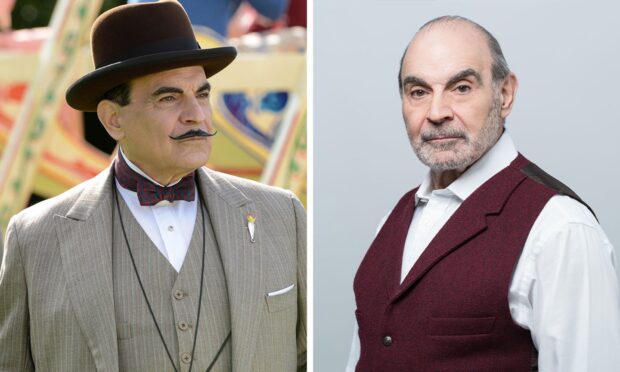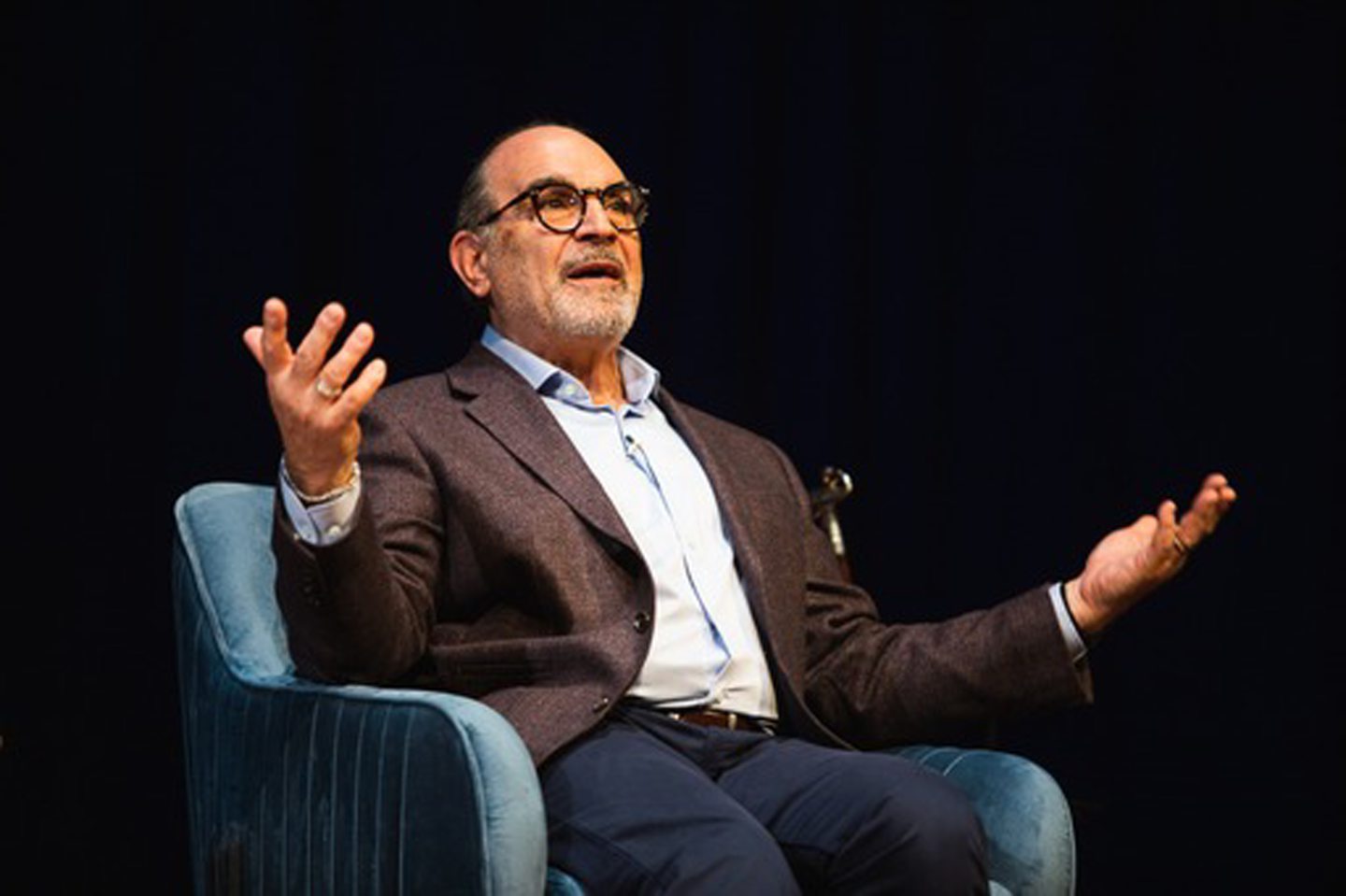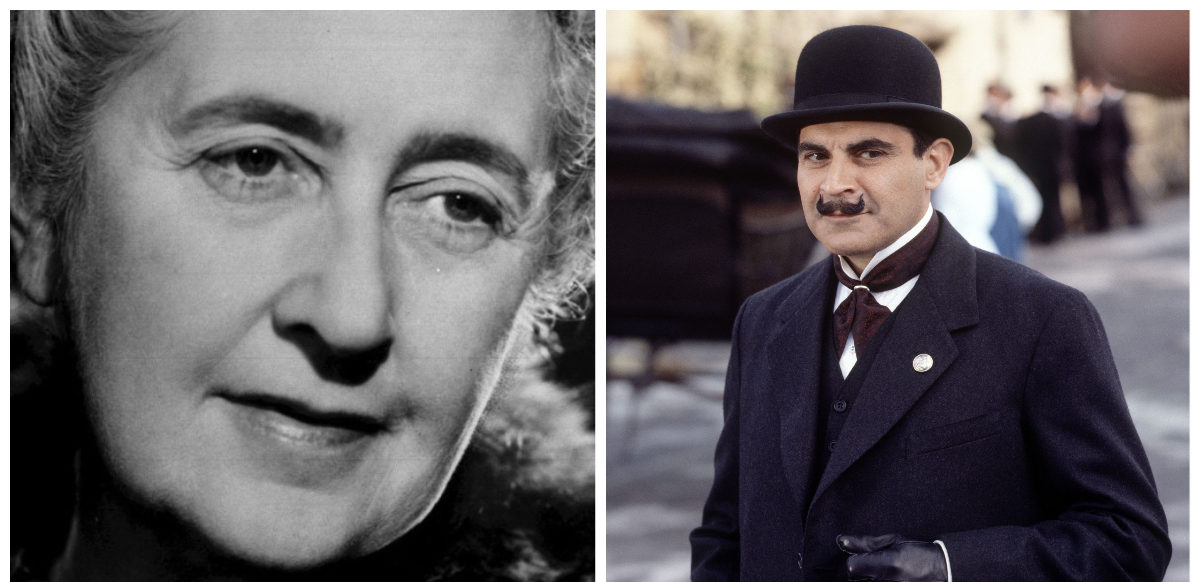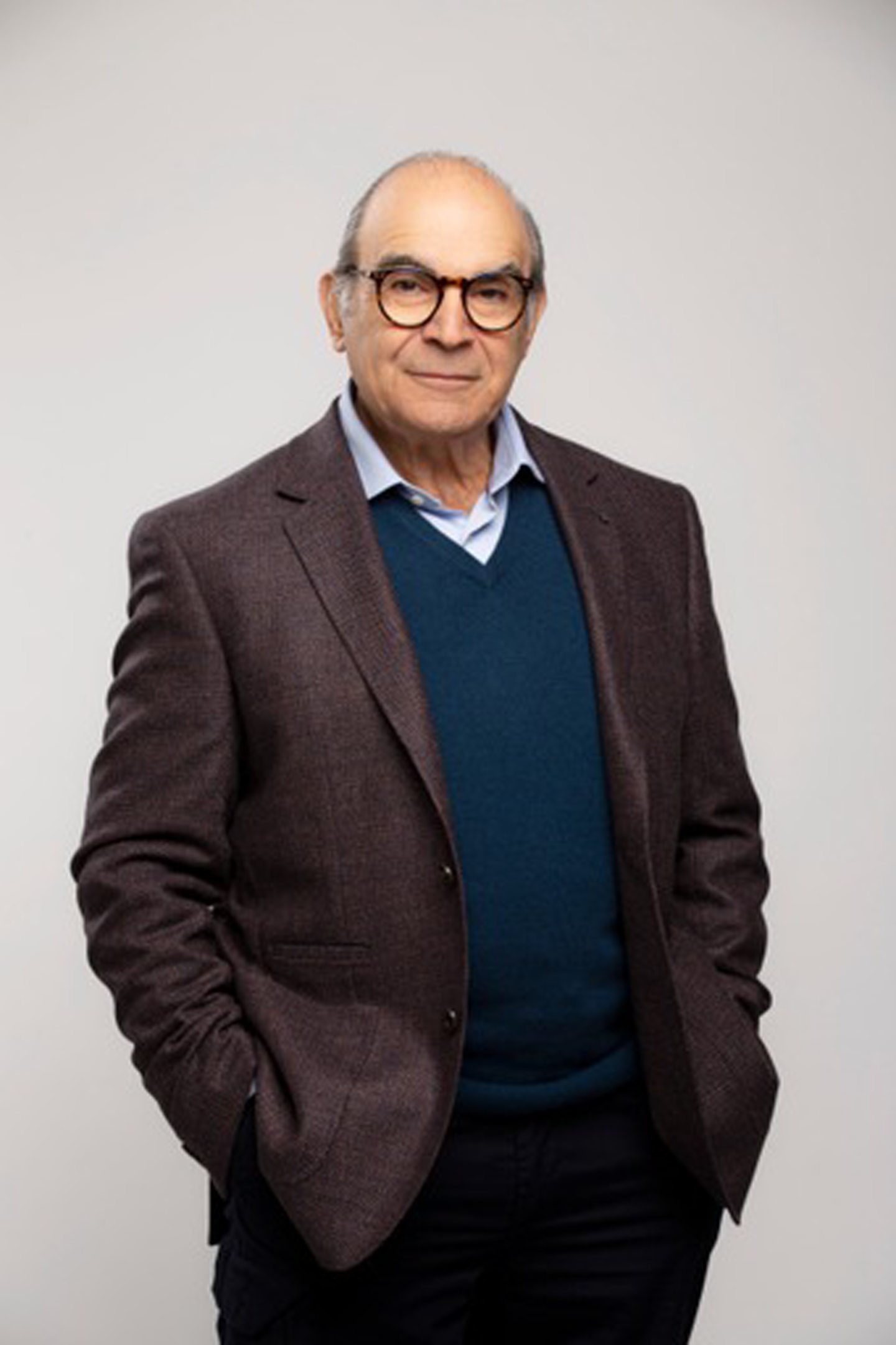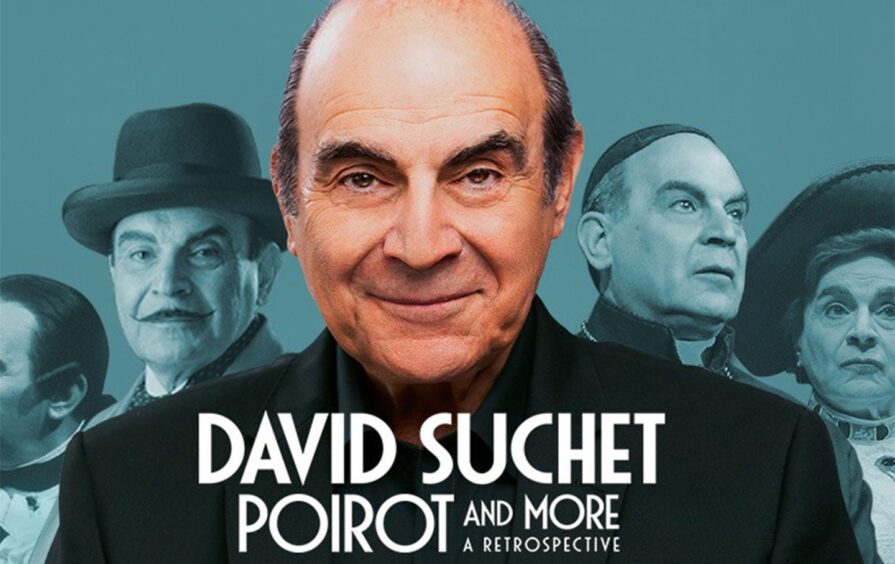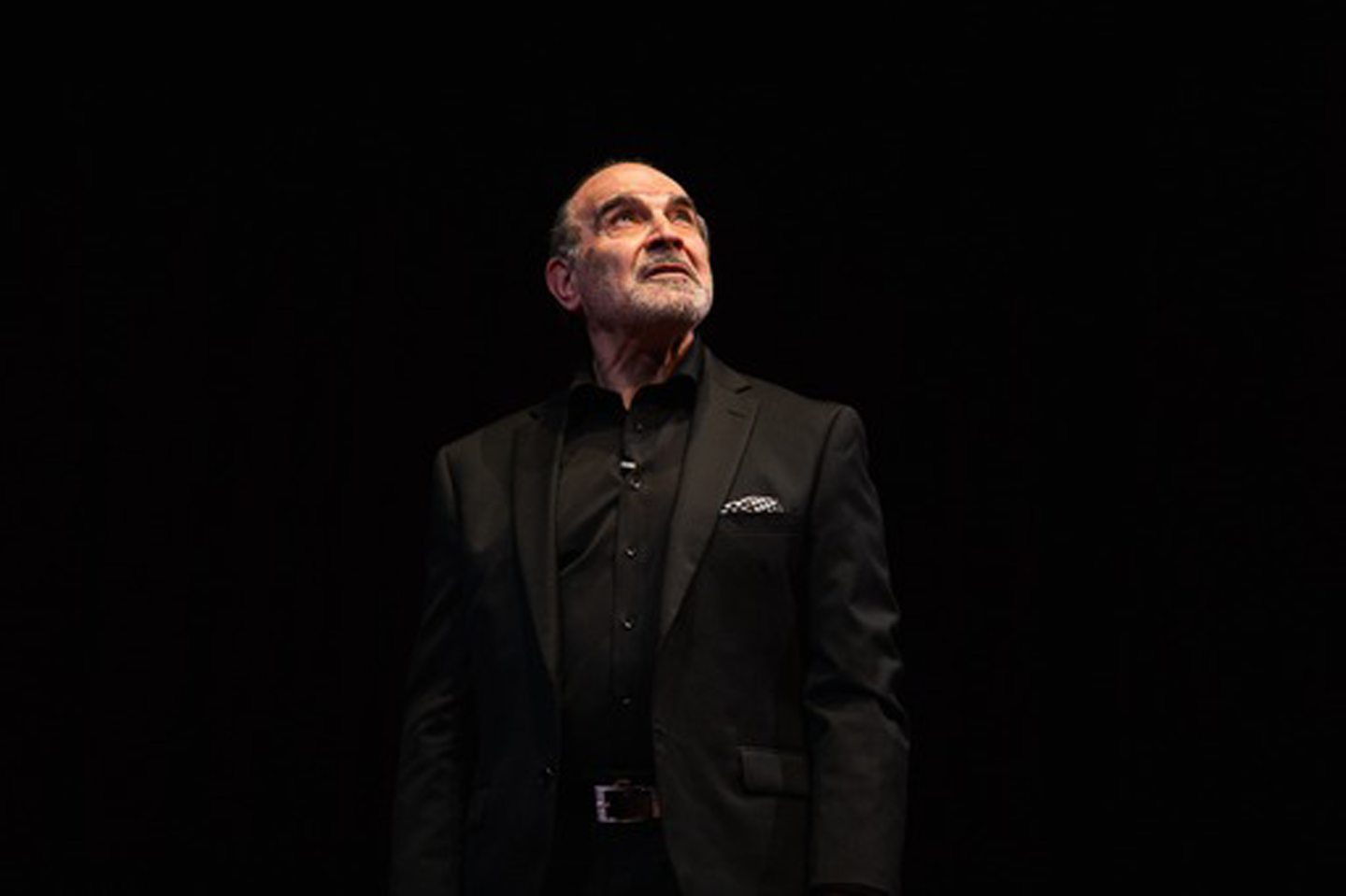Sir David Suchet has portrayed every type of human being during his long and illustrious career on stage, the cinema, and our television screens.
At various times, he has featured in such contrasting roles as nuclear scientist Edward Teller in the BBC series Oppenheimer; Mozart’s rival Salieri in a Broadway production of Amadeus; vampire hunter Abraham Van Helsing in Bram Stoker’s Dracula; notorious press baron Robert Maxwell, and Lady Bracknell in The Importance of Being Earnest by Oscar Wilde.
Yet he knows that, for all his involvement in Shakespearean tragedies, there is one character with whom he is inexorably linked all over the globe; the fussy, fastidious and forensically brilliant detective, Hercule Poirot, originally created by Agatha Christie more than a century ago, but who was only brought to vivid life by the English actor.
How long did David Suchet play Poirot for?
Indeed, his performances across 25 years – until the poignant dramatisation of the final Poirot novel Curtain in 2013 – were sufficiently compelling that many viewers concluded that he must have been born to play the part.
But, as Suchet, 77, explained, prior to appearing in Poirot and More in Aberdeen next Tuesday and Wednesday, he faced plenty of challenges, including the constant threat of cancellation, while bringing his sleuth’s “little grey cells” to the world of crime.
There wasn’t even a familial vote of confidence when he rang his brother, John – the newsreader and broadcaster – and asked what he thought about the invitation.
The elder sibling told him: “I wouldn’t touch it with a barge pole….I mean, Poirot’s a bit of a joke, a buffoon. It’s not you at all.”
Even when David responded that he considered it a wonderful opportunity to engage in an initial run of 10 one-hour dramas of Christie’s work, John still felt it was necessary to offer the warning: “It may be difficult to get people to take him seriously.”
How did David Suchet prepare for the role?
Yet, despite any reservations, he was determined to do justice and collected copies of all the novels and short stories which the Queen of Crime had written about the Belgian with a penchant for unravelling the psychology of murder.
He wasn’t interested in how Albert Finney or Peter Ustinov had depicted the detective in previous big-budget film efforts. Instead, he formed a simpatico with Poirot and even compiled a list of attributes of things he would and wouldn’t do in the new adaptations.
At this stage, nobody could have anticipated how the programmes would be received by the ITV audience. But, as David told me, it transformed his life for ever.
He said: “Right from the outset, I was committed to being the Poirot whom Dame Agatha had written and described and, as soon as I opened the pages, I came face to face with a character whom I had never seen portrayed.
“Once I had read all the novels, it was clear that he wasn’t some caricature, nor some silly little man with a funny accent, any more than Sherlock Holmes was just a morphine addict with a taste for playing the violin. There was a depth and a quality to Poirot – and that was what I desperately wanted to bring to the screen.
Finding similarities with Poirot
“It took a long while until Poirot was where I wanted him to be. I went into extraordinary detail and I started to write my private list of his habits and character. I called it my ‘dossier of characteristics’, which ended up being five pages long, detailed 93 different aspects of his life and which I always carried around with me.
“And I think that we both had things in common. I had exactly the same appetite for order, method and symmetry that he did. And, like Poirot, I was not prepared to compromise what I believed in, because it mattered to me.”
This applied to every facet of how he brought the role to fruition, from inserting a penny between his buttocks to master the Christie maestro’s gait to arguing with producers over how Poirot would or wouldn’t behave. It was a constant battle at the outset, but the reviews were thunderously good, the audience figures tremendous.
And yet, despite its success and critical acclaim, Suchet was never offered more than a year-long contract for the next decade. The end to every series brought the concern: is that it? And what happens now while we wait for the commissioning editors to decide?
Suchet talks about role in Poirot and More
He accepted this with the stoicism for which actors are renowned. And, in his case, whether accepting film commissions in Hollywood or turning to the Bard and performing in some of the greatest dramas ever written, success usually followed and accolades arrived in its slipstream.
He received the Royal Television Society award for his performance as Augustus Melmotte in the British serial The Way We Live Now in 2002, and won an International Emmy Award for Best Actor, following his incarnation as the notorious tycoon Maxwell.
But, as happened so often, Poirot was never far from his mind and even though it’s over a decade since he bade adieu to the detective – one of the few fictional creations whose ‘obituary’ was published in the New York Times – Suchet has recently been delighting audiences in the company of his long-term confrere, author Geoffrey Wansell, who collaborated with him on an insightful book called – what else? – Poirot and Me.
They have subsequently devised a popular stage show, Poirot and More, which involves the actor talking not only about his fascination with his most famous role, but also analyses his passion for Shakespeare and other dramatists in an informal setting.
This has gone from the West End to the Southern Hemisphere and the thrill in Suchet’s voice was evident as he talked about how, in a post-Covid world, he is venturing to many places where he has never been before – including Aberdeen – and discovering that audiences are always absorbed by the “little Belgian” and his ability to cast light into the darkness which so often surrounds the best works of art.
First visit to Aberdeen for Granite Noir
He said: “This is my first visit to Aberdeen and it was originally just the one show, but now there are two [as part of the crime festival Granite Noir] and that is wonderful.
“In recent weeks, we have been thrilled at the response from audiences wherever we have played. There were 1,200 people in Dublin and more than 1,000 in Edinburgh, and it is heartwarming that so many are interested in Poirot – which also, naturally, shows you the enduring appeal of Dame Agatha and her work.
“Regional theatre is where my career began and was nurtured, so I’m very much looking forward to sharing my stories, memories and favourite moments across the country again and visiting a number of new towns and cities that we couldn’t reach post-lockdown when theatres were still closed, particularly in Scotland and Ireland.”
This redoubtable individual has graced the world’s stages and brought a variety of literary greats to life, including Shakespeare, Wilde and Edward Albee.
He doesn’t so much act as get under the skin and into the minds of those he is playing, but Sir David Suchet seems to realise that he wouldn’t be where he is today without the stars aligning with his formidable talent.
Who knows what might have happened if he had listened to his brother all those years ago? But, thankfully, he and Poirot have proved to be a match made in heaven.
Tickets for Granite Noir are available from
aberdeenperformingarts.com/grnte-nr-2024/
Poirot and Me is published by Headline.
